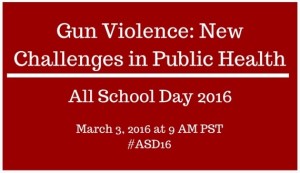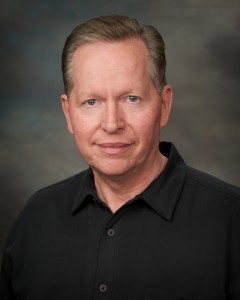[Editor’s note: DRGO Director Dr. Timothy Wheeler was invited to attend as a panelist at this March 3 conference on “gun violence” at the University of Southern California in Los Angeles. Because of sudden illness he unfortunately was unable to attend, but here is the text of his presentation.]
My thanks today to Dean Flynn and Dr. Short for the opportunity to share. We are talking today about ways that social workers can help prevent what some people call gun violence. But I ask you to consider that the discussion should be about “violence” and not “gun violence.”
The wrong focus makes us miss the core problem, which is really violence done by any means, whether the tools of injury are guns or fists or feet. If we get it wrong, we harm millions of innocent people with unjust laws.
Now, just a few facts on the good side. Despite an uptick in the last few years in California’s big cities, the rate of firearm homicides nationwide has actually been decreasing over the last two decades, and it’s leveled off in the last few years. And the absolute number (not just the percentage, but the total absolute number) of fatal firearm accidents has been steadily declining for decades, since the 1930s, even as the U.S. population has more than doubled and gun ownership has gone way up. You can verify these facts for yourselves from the FBI’s Uniform Crime Reports, the Centers for Disease Control’s WISQARS search function, and the CDC’s National Center for Health Statistics.
I won’t try to advise social workers on how, in a few days or weeks they can overcome a client’s lifetime of living in a culture of violence. That’s a daunting task. But please let me offer a caution on what not to do. In the helping professions we tend to see too many victims of firearm violence. It’s easy to conclude that guns are the cause of their misery. But that is a fundamental mistake.
Those people who murder, assault, rob, and rape using guns are only a tiny, tiny fraction of America’s gun owners. The CDC reports that in 2013 there were a total of 73,428 criminal firearm nonfatal injuries and deaths. Now the number of gun owners in America is tough to nail down, but a study last year in the journal Injury Prevention found that one third of U.S. residents are gun owners, which would put the number at about 105 million. A Gallup poll for the year 2014 found about the same results. Other estimates range between 80 and 100 million. To stay on the conservative side, let’s call it 80 million.
By those numbers, about one gun owner in a million criminally misuses a firearm over a year’s time to cause an injury or death.
It’s easy to see from these numbers that any strategy for reducing violence by targeting gun owners is not only doomed to failure, it’s going to face overwhelming political opposition. And that is, in fact, what has happened. People are outraged at the attack on one of their basic human rights, the right of self-defense. And we should be clear—the right to own a firearm is one of our enumerated civil rights. The U.S. Supreme Court made that clear 8 years ago in District of Columbia vs. Heller.
But these numbers don’t show us the human toll of turning gun owners into criminals with the stroke of a pen, not because they’ve hurt someone, but because they didn’t file some paperwork, or they own a gun that has a scary military appearance but that in reality functions like any other gun.
Among these innocent are the poor and the disadvantaged, many of whom you serve in your work. These folks often live in the most dangerous and high-crime neighborhoods, and they suffer the most from violent crime. Do we really want to make their lives harder still by passing laws that attack their civil right to own a firearm for self-defense? Where is the justice in that?
One of these laws that turn innocent people into status criminals is already in effect here in Los Angeles since last year. This law, if the voters pass it statewide this November, will ban throughout California the ownership of gun magazines that hold more than 10 rounds of ammunition. A gun magazine is that plastic or metal box that holds the ammunition and usually fits into the grip of the gun. By the way, greater than 10 round magazines are totally uncontroversial in 99% of the country. They are standard equipment.
This law has enjoyed the support of my fellow panelist City Attorney Feuer here. It is aimed at the tiny number of mass shooters—the James Holmeses and Adam Lanzas. But it’s only going to succeed at one thing—trapping innocent, regular Californians who may not even know that a new law has overnight turned them into criminals. Where is the justice in that?
Take my own case. I’ve had a long and successful career as a surgeon here in California. I have no criminal record, no record of medical board actions, not even any complaints against my physician and surgeon’s license. For 27 years I’ve owned a very popular, very common brand of pistol with a magazine that holds 15 rounds of ammunition. That’s how they were made when I bought it.
So by next year, if this measure becomes law, my ownership of that magazine, not even the gun that it’s a part of but only the magazine, will make me a criminal overnight. I will have to report the conviction to the California medical board and could very well lose my license to practice medicine, my livelihood. And hundreds of thousands, maybe millions of Californians like me will also be turned into instant status criminals. Where is the justice in that?
There is no harmful thing that can possibly be done with a gun that has not already been outlawed many years ago. It’s time to stop inventing new crimes that keep our peace officers from catching truly dangerous criminals, that drain our state’s finances away from solving real problems, and that only destroy the lives of innocent Californians.
The guiding principle for my profession is “First do no harm.” I believe it’s a code any person in the helping professions can live by. Even with the best intentions it’s easy to do great harm when we bring the mighty power of government down on our fellow citizens. We went into the helping professions to help people. So yes, let’s all work to stop violence. But first, let’s do no harm.
Thanks for your attention, I’ll be glad to take your questions during the panel.
—Timothy Wheeler, MD is director of Doctors for Responsible Gun Ownership, a project of the Second Amendment Foundation.


